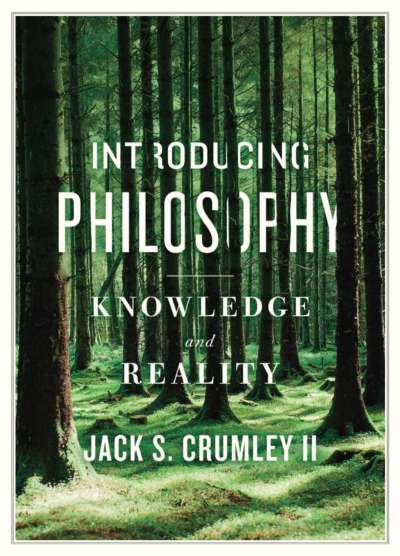Happy Lives, Good Lives offers a thorough introduction to a variety of perspectives on happiness. Among the questions at issue: Is happiness only a state of mind, or is it something more? Is it the same for everyone? Is it under our control, and if so, to what extent? Can we be mistaken about whether we are happy? What role, if any, does happiness play in living a good life? Is it sometimes morally wrong to pursue happiness? Should governments promote happiness through public policy? Asking and answering these questions is worthwhile not only as an intellectual exercise, but also as a means of gaining practical insight into how best to pursue a happy life.
Comments
“Happy Lives, Good Lives: A Philosophical Examination is an outstanding book, brimming with exciting philosophical ideas, always expressed clearly and supported with engaging examples. Mulnix and Mulnix have wisely decided to organize this book by topic, not chronology, which allows them to bring in contemporary scientific findings as they are relevant. As a result, readers get a more complete view of the nature of happiness more quickly. It is an unparalleled strength of Happy Lives, Good Lives that its readers will be ready and able to apply what they have learnt about happiness to their own lives, the lives of others, and possible public policies.” — Dan Weijers, California State University, Sacramento
“Students and teachers alike will benefit from this comprehensive guide to theories of happiness. Mulnix and Mulnix offer engaging, charitable presentations of theories from ancient philosophy to contemporary psychology, illustrated with examples from real life, literature, and film (the Dalai Lama, Stephen Hawking, Robin Hood, and Truman Burbank from the film The Truman Show all make an appearance). They pose questions that challenge our assumptions about happiness, and they weave these diverse views into a compelling narrative that culminates in a thoughtful discussion of the prospects for government policies to promote happiness.” — Valerie Tiberius, University of Minnesota
Preface
Online Materials
PART I: THINKING ABOUT THE NATURE AND VALUE OF HAPPINESS
Chapter 1: Introduction
- Who Is the Happy Person?
Three Theories of Happiness
The Value of Happiness
Overview of the Book
Chapter 2: Intuitions about Happiness
- Is Happiness Only a State of Mind?
Is Happiness More Than a Mental State?
Can We Be Wrong about Our Own Happiness?
Is Happiness under Our Control?
Chapter 3: Happy Lives, Good Lives, and Moral Lives
- Is What’s Good for You Good for Me?
Happiness: Description or Evaluation?
How Might the Happy Life Be Connected to the Good Life?
The Happy Life and the Moral Life
PART II: HAPPINESS AS PLEASURE
Chapter 4: The Feel-Good Feature of Happiness
- Varieties of Hedonism
Can Happiness Be Measured? The Felicific Calculus
Remembering versus Experiencing Happy Events
The Worry of Adaptation
We Love Happy Endings
Is There Just One Type of Pleasure Feeling?
Desiring Things Other Than for How They Feel
Chapter 5: Taking Pleasure in Things and Feeling Joy
- Pleasure Is an Attitude, Not a Feeling
Where’s the Fun in Happiness?
Do We Actually Want Those Things That Bring Us Pleasure?
Happiness Is Deep, Man
The Problem with Feelings
PART III: HAPPINESS AS SATISFACTION
Chapter 6: Satisfied with What?
- Local Desire Satisfactionism
Whole Life Satisfactionism
That Which Is, Was, and Will Be
Not Happy? Just Lower Your Standards
Mistakes Come Easy: The Contextual, Arbitrary, and Fickle Nature of Life Satisfaction
Do We — or Can We — Even Make Life Satisfaction Judgments?
Chapter 7: It’s All about Perspective
- Putting Things in Perspective
Value-Based Life Satisfaction
Figuring Out What We Want
Is Being Satisfied Enough?
Revisiting the Cult Experience
PART IV: HAPPINESS AS EUDAIMONIA
Chapter 8: Is Ignorance Bliss?
- Do We Value Things outside Our Subjective Experience?
Are We Talking about Well-Being or Happiness?
Can We Be Happily Deceived?
Are Happiness and Well-Being the Same?
What of Moral Virtue?
Chapter 9: Happiness, Moral Virtue, and the Purpose of Life
-
The Transformative Power of Virtue
The King, the Tyrant, and the Democrat: The Role of Pleasure in the Life of Virtue
The Complete Life
The Psychological Rewards of the Eudaimon Life
A Theory of Capabilities
How Much Is Enough?
Chapter 10: Finding Equanimity in the Face of Suffering
- Equanimity as the Goal
The Determined Universe: A Lesson in What Lies within and beyond Our Control
The Science of Mindfulness
Overcoming Irrationality and Dealing with Loss
Finding Meaning in Suffering
PART V: APPLICATIONS AND FURTHER QUESTIONS
Chapter 11: Justice and National Happiness
-
Can National Happiness Be Measured?
Measuring Happiness in Terms of Wealth
Indexing Subjective Well-Being
Building a List for Happiness: A Capabilities Index
The Greatest Happiness for the Greatest Number?
Chapter 12: Concluding Reflections
Jennifer Wilson Mulnix is Associate Professor of Philosophy at the University of Massachusetts Dartmouth.
M.J. Mulnix is Associate Professor of Philosophy at Salem State University.













